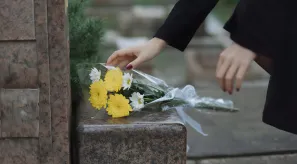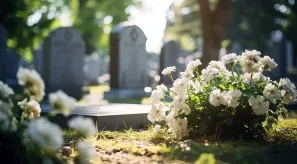What happens to the debts of a deceased person? When a loved one has died with debts, family will need to know who is responsible for them and how to proceed. At Stelae we will explain how to handle this situation.
Responsibility for the debts of a deceased person in Spain
Under Spanish law, when a person dies, their debts do not disappear. Liability falls on their estate, i.e. their assets and property, which must be used to pay creditors, unless the heirs assume this liability.
Who pays the debts of a deceased person in Spain?
Who inherits the debts of a deceased person? According to regulations, the debts of a deceased person in Spain pass to their children or successors. However, it is not the debts that are inherited, but the obligation to pay them.
From the moment the will takes effect, the heirs can accept or reject the inheritance, which includes both tangible and intangible assets. Therefore, these debts are also part of the succession process and are distributed among the heirs who accept the will.
Which debts are subject to the statute of limitations after death?
Under Spanish law, some debts are subject to the statute of limitations from four years after the death of a person. Which debts are subject to the statute of limitations and within what period of time?
- Tax and Social Security debts → 4 years
- Debts from non-mortgage bank loans and credit cards → 5 years
- Rent derived from rental contracts → 5 years
- Child support → 5 years
- Defaults or debts arising from a purchase contract → 5 years
- Mortgage debts → 20 years
In any case, in order for these debts to be subject to the statute of limitations, certain requirements must be met. For example, the creditor must not have attempted to collect the debt for the last five years.
In the event that the debt has been claimed, it will not be subject to the statute of limitations when:
- The creditor has not taken judicial or extrajudicial action.
- The debtor has not accepted or expressly acknowledged any outstanding debt.
Once a person dies, their creditors can initiate proceedings to claim payment of the debts. If the creditor does not take any action to collect the debt within the time period prescribed by law, the debt is considered time-barred and the creditor can no longer demand payment. It should be remembered that it is not the debt itself that is time-barred, but the opportunity to claim it.
How is the inheritance of debts dealt with under Spanish law?
What happens to the debts of a deceased person under Spanish law? According to the regulations, the debts that can be inherited are:
- Credit cards
- Personal loans
- Mortgages
- Social security debts
- Fines
This means that almost any debt that a person incurs will have to be taken over by their heirs when they die. This will need to be settled as part of the estate settlement process.
To minimise the impact of the debts, the best strategy is to reject the inheritance, as it avoids the responsibility of paying the debt. But if you die, what happens to your debts? In reality, the financial burden on your loved ones can be avoided with some proper financial planning. You can even plan from a funeral perspective by choosing simple services such as the ones provided by Stelae. Take a look at our cremation services with all the different options available to make sure everything is already taken care of in advance.
How to find out if a deceased person has debts
How are you able to discover if a deceased person has debts with the tax authorities or the bank? Only the heirs can go to public authorities to obtain information about the financial situation of their loved one. They can also go to financial institutions to request information on bank accounts or investment products that the deceased may have had.
However, in order to obtain all this information, you must provide two documents: the death certificate and the last will and testament register.
What should you do in the case of the death of someone with outstanding debts?
What happens with the bank debts of a deceased person? The bank will always be looking to collect the money owed to it. With this in mind, if someone has died with debts, it is important to be prepared in case you have to take responsibility for repaying them.
Legal steps and processes after a loved one dies with debts
When a person has died with debts, their heirs have two options:
- Accept the inheritance and pay the debts (up to the limit of the value of the inherited assets).
- Reject the inheritance to avoid being responsible for the payment of the debts.
If you take the first option, the debts are automatically paid out of the inherited property, unless you prefer to pay the debt yourself and keep the property. You can either wait for the creditor to claim payment or you can enquire about the possible debts yourself. To do this, you will need to request the death certificate and the last will and testament register, and then request such information from banks or the relevant public bodies.
Advice on how to cope effectively with a deceased person's debts
The best thing to do when a loved one has died with debts is to calculate, before accepting the inheritance, whether it will cause you significant financial damage.
Seek legal advice to determine what the best option is for you and, if the debt is greater than the benefit of the inheritance, the best approach is to renounce the inheritance so that you do not have to assume the responsibilities associated with it.



